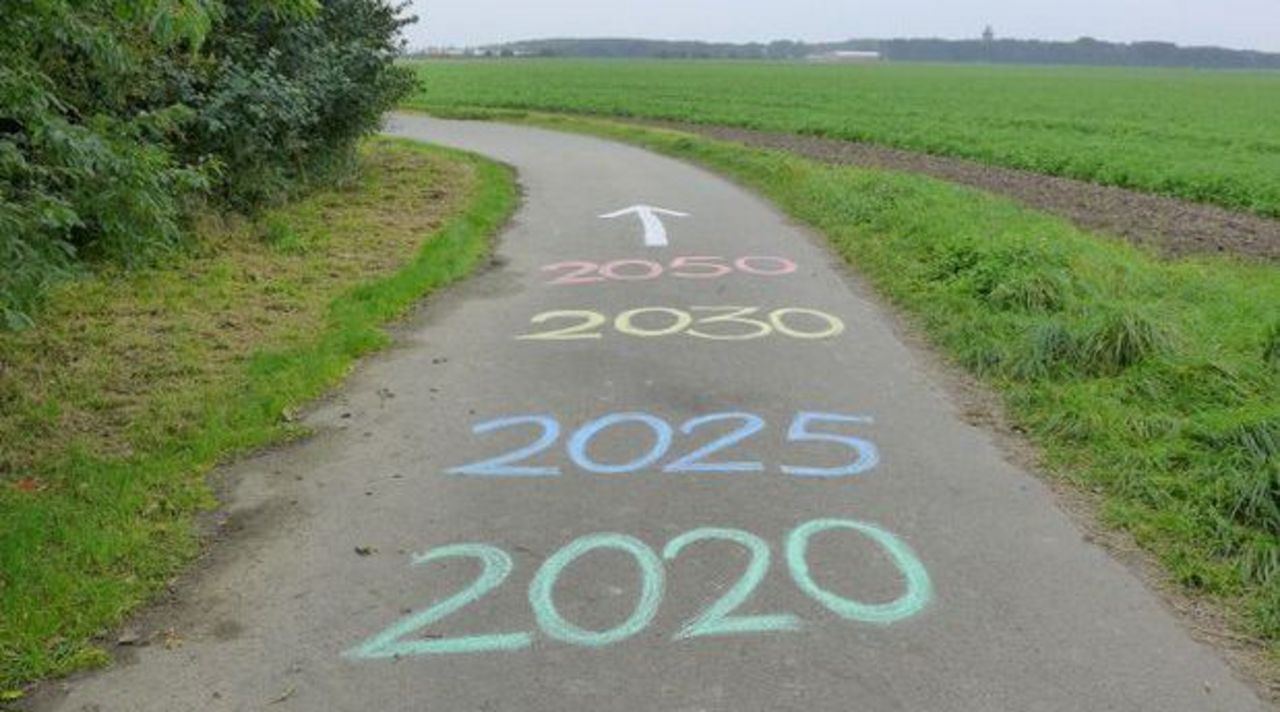Project
On the way to 30% organic farming

Scientific monitoring and development of the German organic action plan (ZöL) into the Organic Strategyy 2030 of the Federal Ministry of Food and Agriculture
"30 per cent organic farming by 2030" – this is the goal formulated by the German government in the 2021-2025 coalition agreement. What has happened in Germany so far? What would be necessary to achieve the target?
Background and Objective
A significant expansion of organic farming in Germany has been a goal of the German government for more than 20 years. Political objectives and measures for the expansion of organic farming were formulated for the first time in 2001 in the wake of the BSE crisis and the "agricultural turnaround" it triggered. The Federal Organic Farming Programme (BÖL) was created in response to this.
In 2015/2016, the Federal Ministry of Food and Agriculture (BMEL), together with representatives from business, science, politics and administration, developed the “Organic Farming – Looking Forwards” Strategy (ZöL) and presented it to the public in February 2017 in order to provide additional growth impetus for the organic farming and food industry. The aim of the ZöL was to realign the political framework conditions at national level and to support the development of the sector with suitable measures.
Against the backdrop of the "30 per cent organic farming by 2030" target formulated in the 2021–2025 coalition agreement, the ZöL was to be further developed into a strategy of the entire federal government that encompasses the whole value chain of the organic farming and food sector. In the summer of 2022, the BMEL initiated a participatory process to this end, in which the Thünen Institute was involved as a scientific partner – as was previously the case with the ZöL and the development of the BÖL. The process and the actors involved are published via a website, see BMEL - Ökologischer Landbau - Öko-Landbau stärken: Prozess zur Erarbeitung der Bio-Strategie 2030
The Thünen Institute supported the development of the Organic Strategy 2030 through various activities:
- The Institute of Organic Farming was intensively involved in shaping the participatory process, including initiating and moderating numerous discussions and workshops.
- The Institute of Organic Farming also played a leading role in drawing up a paper on the need for research for a significant expansion of organic farming and coordinated the process for drawing up the paper. An important element of the process was a workshop at the 16th Scientific Conference on Organic Agriculture (WITA) in 2023.
- Data on the development of the organic farming and food industry was compiled in cross-institute working groups and analyses were carried out on selected segments of the organic market (including pigs, laying hens, broilers and aquaculture). Their aim was to identify internal strengths and weaknesses as well as external opportunities and risks for the respective segment and to derive possible fields of action and (policy) measures.
Results
In November 2023, the "Organic Strategy 2030 – National Strategy for 30 per cent organic agriculture and food by 2030" was published, see BMEL - Pressemitteilungen - BMEL bringt Bio-Strategie 2030 auf den Weg. Like the action plans ZöL and BöL before it, this is a strategic concept of the BMEL and not – as originally planned – a strategy of the federal government.
The strategy comprises a total of 30 measures, which are assigned to the following six fields of action:
- Input markets
- Production
- Processing and trade
- Nutrition and society
- Research, knowledge transfer, data availability, infrastructure
- Coherent legal and funding framework
Thünen-Contact

Prof. Dr. agr. habil. Gerold Rahmann
Involved Thünen-Partners
Duration
1.2017 - 12.2023
More Information
Project status:
finished
Publications to the project
- 0
Paulsen HM, Mahlberg B, Hahn D, et al (2023) Forschung zur Ausweitung des ökologischen Landbaus in Deutschland : Hintergrundpapier zu bisherigen Studien und Ableitung von Forschungsbedarf und Forschungsstrukturen [Anlage 2.]. In: WITA-Workshop „Für 25% Öko-Landbau und mehr - welche Forschung brauchen wir?“ am 07.03.2023 in Frick : Ergebnisbericht und Ableitung von Schwerpunkten für die zukünftige Öko-Forschung. Bonn; Westerau: BLE; Thünen-Institut für Ökologischen Landbau
- 1
Hahn D, Paulsen HM, Schröder D (2023) WITA-Workshop „Für 25% Öko-Landbau und mehr - welche Forschung brauchen wir?“ am 07.03.2023 in Frick : Ergebnisbericht und Ableitung von Schwerpunkten für die zukünftige Öko-Forschung [online]. Bonn; Westerau: BLE; Thünen-Institut für Ökologischen Landbau, 19 p, zu finden in <https://www.bmel.de/SharedDocs/Downloads/DE/_Landwirtschaft/Biologischer-Landbau/wita-workshop-ergebnisbericht.pdf?__blob=publicationFile&v=3> [zitiert am 05.07.2023]
- 2
Bosse A, Sanders J (2021) Bio Bitte? : Einsatz von Bioprodukten in Kantinen im Geschäftsbereich des BMEL : ZÖL-Bericht. Braunschweig: Thünen-Institut für Betriebswirtschaft, 6 p



![[Translate to English:] Logo des Bundesministerium für Ernährung und Landwirtschaft](/media/allgemein/logos/BMEL_Logo.svg)